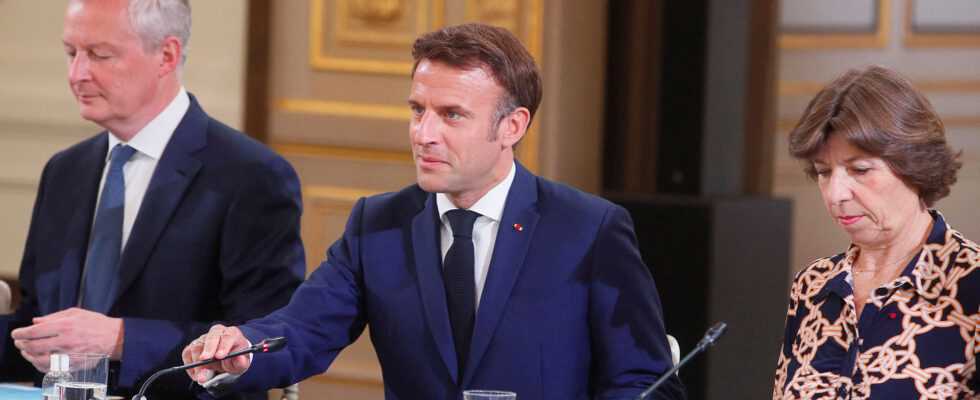Since his re-election, Emmanuel Macron seems to want all his time. At the risk of giving the impression of confronting the promised reforms (pensions, health, school, etc.). Nothing to do with the start of the previous five-year term.
Macron 2 will be the ma non troppo reform. No more question of reform “to the sound of the cannon” according to the expression of a close friend of the President of the Republic. “But do not count on him to chiraquise”, adds the same elected, at the heart of the political device of the champion of “at the same time”. The start of Emmanuel Macron’s term of office raises questions. Here is a candidate who promised before the first round to reform all over the place, to somehow catch up with the delay taken during his first five-year term because of the Covid vest crises. Twenty-five days after his re-election, the head of state is procrastinating. Takes its time (21 days to appoint its Prime Minister). And now claims to want to consult, discuss with the bench and the back bench of the intermediate bodies to take reform action. Result: like an impression that this Macron 2 and his government are skating.
His political friends relativize this sluggish start. Emmanuel Macron would have learned the lessons both from the presidential campaign – he would have measured the tension in the country between the two rounds – and from his previous five-year term. “He is not going to shoot himself all the bullets at the same time to find himself confronted with a social explosion at the start of the school year”, comments an elected official. The Head of State should not, for example, unlike 2017, speak to Congress after the legislative elections. A presidential speech in particular to expose his new method of governance is not excluded but, at this stage, the real kick-off of the five-year term will be marked by the speech of general policy that Elisabeth Borne will deliver before the new National Assembly probably the 5 of July. Then, the president wants to impose a long phase of consultation on the sites of his mandate: from the reform of pensions to that of the school, from the ecological transition to the end of life through that of the institutions. In short, the France of the intermediary bodies should be on time for a new great debate.
Pension reform already postponed indefinitely?
In the immediate term, the executive wants to focus on the pressing issue of purchasing power which is both the easiest (it’s about handing out money) and the hardest (how to find money that will become more expensive with rising rates). The principle of pushing back the retirement age to 65 had already been more or less in the intervening period lowered to 64 by the president. We heard the Prime Minister can no longer cling to this Totem and the new Minister of Labor Olivier Dussopt refuse to set a timetable. “It will take at least a year but we will do it,” maintains one of the heavyweights of the government. Is it safe? “I am for pension reform but on the ground even right-wing voters are not for 65s,” sighs one of the ex-LR ministers.
Of course, Emmanuel Macron has in mind today the battle of the legislative elections that must be won. Not sure that he has as large a majority as in 2017. Hence the caution expressed here and there by the macronists. A tactical choice therefore with the hope that the “useful vote” activated by the (unlikely) fear of seeing Jean-Luc Mélenchon take his revenge in June. But beyond the president’s political strategy to avoid any unpleasant surprises, there is also the risk of a second term for nothing. The specter of chiraquisation even if all the president’s friends assure that he will reform because he is no longer subject to re-election.
